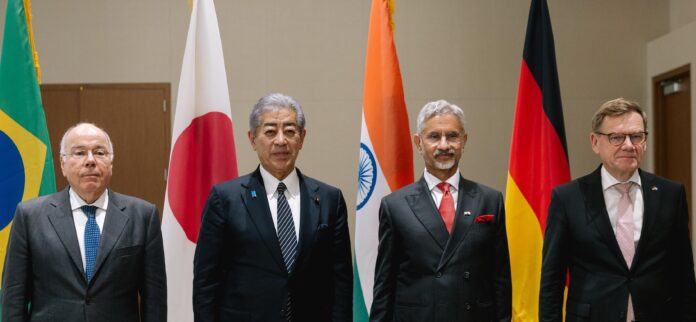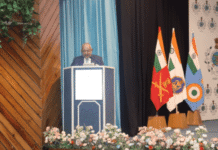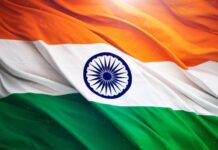External Affairs Minister S. Jaishankar joined his counterparts from Brazil, Germany, and Japan to review the state of negotiations on reforming the United Nations Security Council (UNSC), with the four countries, collectively known as the G4, reaffirming their shared commitment to the long-pending goal.
After the meeting on Thursday, Jaishankar wrote on X that the “G4 reiterated its commitment to reforming the United Nations including the UN Security Council. It also assessed the current state of the Inter-Governmental Negotiation (IGN) process.” His counterparts Mauro Vieira of Brazil, Takeshi Iwaya of Japan, and Johann Wadephul of Germany also participated.
The G4, which campaigns for the addition of permanent members to the UNSC, has long advocated mutual support for each other’s bid for seats on an expanded Council. However, progress has been slow. Since negotiations began in 2009, the process has repeatedly stalled, largely due to a small group of countries blocking the adoption of a formal negotiating text that would set the agenda for substantive discussions.
The UN General Assembly last month once again rolled over the process to the new session, continuing the cycle of inconclusive debate. Yet the G4 has identified one sign of movement this year, the cochairs of the IGN produced a revised “Elements Paper” that documents countries’ positions, creating a record that could help sustain momentum.
UN Secretary-General António Guterres has also expressed cautious optimism, noting that the IGN now has a functioning committee producing documents, unlike in earlier years. “So I see movement,” he said, though acknowledging the challenges of reaching consensus.
For India, reforming the UNSC remains a top diplomatic priority. New Delhi has consistently argued that the Council, structured in the aftermath of World War II, no longer reflects contemporary realities or the aspirations of the Global South. Securing a permanent seat, alongside other emerging powers, is central to its foreign policy ambitions.
On Wednesday, Jaishankar also convened a meeting involving the L.69 group, a coalition of 42 countries from the Global South advocating reform, and the C-10, a bloc of 10 African nations pressing for permanent representation. The joint engagement underscores the growing coalition of voices demanding structural change in the Council’s composition.
Despite the repeated rollovers and resistance, the G4 ministers emphasized their continued unity and determination to push for reforms. For them, the challenge lies not only in breaking the deadlock within the IGN but also in maintaining momentum for a more inclusive and representative UN system.







